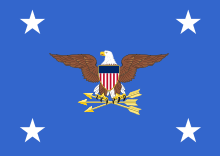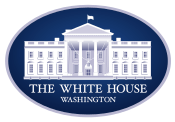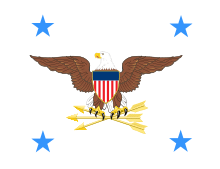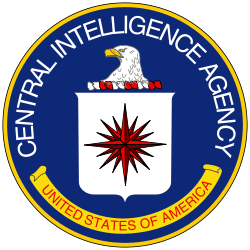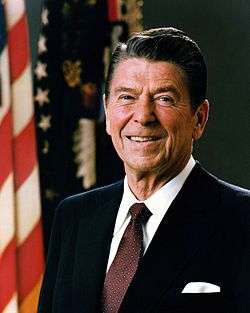Frank Carlucci
| Frank Carlucci | |
|---|---|
.jpg) | |
| 16th United States Secretary of Defense | |
|
In office November 23, 1987 – January 20, 1989 | |
| President | Ronald Reagan |
| Deputy | William Taft |
| Preceded by | Caspar Weinberger |
| Succeeded by | Dick Cheney |
| 15th United States National Security Advisor | |
|
In office December 2, 1986 – November 23, 1987 | |
| President | Ronald Reagan |
| Deputy | Peter Rodman |
| Preceded by | John Poindexter |
| Succeeded by | Colin Powell |
| 18th United States Deputy Secretary of Defense | |
|
In office February 4, 1981 – December 31, 1982 | |
| President | Ronald Reagan |
| Preceded by | Graham Claytor |
| Succeeded by | Paul Thayer |
| 13th Deputy Director of the Central Intelligence Agency | |
|
In office February 5, 1978 – February 4, 1981 | |
| President |
Jimmy Carter Ronald Reagan |
| Preceded by | John Francis Blake |
| Succeeded by | Bobby Inman |
| United States Ambassador to Portugal | |
|
In office January 24, 1975 – February 5, 1978 | |
| President | Gerald Ford |
| Preceded by | Stuart Scott |
| Succeeded by | Richard Bloomfield |
| 4th Director of the Office of Economic Opportunity | |
|
In office January 1971 – December 1972 | |
| President | Richard Nixon |
| Preceded by | Donald Rumsfeld |
| Succeeded by | Phillip V. Sanchez |
| Personal details | |
| Born |
Frank Charles Carlucci III October 18, 1930 Scranton, Pennsylvania, U.S. |
| Died |
June 3, 2018 (aged 87) McLean, Virginia, U.S. |
| Resting place | Arlington National Cemetery[1] |
| Political party | Republican |
| Spouse(s) |
Jean Anthony (m. 1954; div. 1974) Marcia Myers (m. 1976) |
| Children | Three (Two with Anthony; One with Myers) |
| Education |
Princeton University (AB) Harvard University (MBA) |
| Military service | |
| Allegiance |
|
| Service/branch |
|
| Years of service | 1952–1954 |
Frank Charles Carlucci III (October 18, 1930 – June 3, 2018) was an American politician and diplomat who served as the United States Secretary of Defense from 1987 to 1989 in the administration of President Ronald Reagan.[2]
Carlucci served in a variety of senior-level governmental positions, including Director of the Office of Economic Opportunity in the Richard Nixon administration, Deputy Director of the CIA in the Jimmy Carter administration, and Deputy Secretary of Defense and National Security Advisor in the Reagan administration.
Early life
Carlucci was born in Scranton, Pennsylvania, the son of Roxanne (née Bacon) and Frank Charles Carlucci, Jr., an insurance broker. His father was of Italian and Swiss descent.[3] He graduated from Wyoming Seminary in 1948 and Princeton University in 1952, where he roomed with Donald Rumsfeld, and attended Harvard Business School for an MBA in 1954-55.[4] He was a Naval officer from 1952 until 1954.[5] He joined the Foreign Service, working for the State Department from 1956 until 1969.[6]
Early career
In 1961, Carlucci was the second secretary at the United States Embassy in the Congo and a covert CIA agent.[5] During that time, Patrice Lumumba, the first prime minister of independent Congo, was executed in January 1961 during the Congo Crisis.[7]
According to subsequently released US government documents, President Dwight D. Eisenhower ordered the CIA to eliminate Lumumba.[7][8] Minutes of an August 1960 National Security Council meeting confirm that Eisenhower told CIA chief Allen Dulles to "eliminate" the Congolese leader.[9] The official note taker, Robert H. Johnson, testified to this before the Senate Intelligence Committee in 1975. However, subsequent investigations indicate that Lumumba was ultimately executed by order of political rival Moïse Tshombe of the State of Katanga with Belgian assistance.[7][10]
According to James Schlesinger, a subsequent Prime Minister of the Congo, Cyrille Adoula, began a White House meeting with President John F. Kennedy with the question "Où est Carlucci?" ("Where is Carlucci?"). Kennedy first responded "Who the hell is Carlucci?'" and then sent Dean Rusk to find him.[11]
A fictionalized 2000 biopic of Lumumba, titled Lumumba, and directed by Raoul Peck, portrayed Carlucci as being involved during his service in Congo in the murder of Congolese independence leader Patrice Lumumba.[11][12] Carlucci furiously denied the claims, and successfully went to court to prevent being named in the film when it was released in the United States.[11][12]
Sevice in Presidential administrations
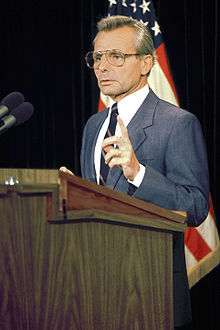
In 1969, when President Nixon persuaded U. S. Rep. Rumsfeld to leave his congressional seat to become director of the Office of Economic Opportunity (OEO), the agency created by R. Sargent Shriver to fight President Johnson's War on Poverty, Rumsfeld had Carlucci transferred to OEO from the State Department to head up the Community Action Program.[13] Carlucci was Undersecretary of Health, Education and Welfare when Caspar Weinberger was secretary during the Nixon administration.[13]
Carlucci became Ambassador to Portugal, and served in this position from 1974 until 1977.[13] He was remembered in Portugal among the winners of the November 25 Coup d'État.[14]
Carlucci was Deputy Director of the CIA from 1978 until.1981, under CIA Director Stansfield Turner.[6]
Department of Defense
Carlucci was United States Deputy Secretary of Defense from 1981 until 1983.[15] He later served as United States National Security Advisor from 1986 until 1987.[16]
Carlucci became United States Secretary of Defense in 1987, following the resignation of Caspar Weinberger due to his involvement in the Iran-Contra Affair.[6] He served as Secretary of Defense until the end of the Reagan administration on January 20, 1989.[6][13] He was notable during the administration for advocating an arms build-up to hasten the end of the Cold War, a policy which Reagan followed.[13]
Post-Administration work
Business
Carlucci served as chairman of the Carlyle Group from 1992 until 2003, and chairman emeritus until 2005.[6][13] He had business interests in the following companies: General Dynamics, Westinghouse, Ashland Oil, Neurogen, CB Commercial Real Estate, Nortel, BDM International, Quaker Oats, and Kaman.[17] Carlucci was at one time a director of the private security firm Wackenhut,[18] and was a co-founder and senior member of the Frontier Group, a private-equity investment firm.[19] Carlucci was an advisory board member of G2 Satellite Solutions and the Chairman Emeritus of Nortel Networks.[20]
Organizations
Carlucci was affiliated with the Project for the New American Century (PNAC), a conservative think tank.[21] He was Chairman Emeritus of the US-Taiwan Business Council having been Chairman from 1999-2002; he was succeeded in 2003 by William Cohen.[22][23] Carlucci was a member of the Board of Trustees of the RAND Corporation[24] and was founding co-chair of the Advisory Board for RAND's Center for Middle East Public Policy.[25] He was also a member of the Honorary Board of the Drug Policy Alliance, a group which advocates drug legalization.[26]
Personal life and death
Carlucci was married to Billie Jean Anthony from 1954 until the couple divorced in 1974.[27] They had two children.[27] Carlucci was later married to Marcia McMillan Myers from 1976 until his death. They had one daughter. [27]
Carlucci died on June 3, 2018, from complications of Parkinson's disease, at his home in McLean, Virginia, at the age of 87.[5][6]
References
- ↑ Frank Carlucci III Notice
- ↑ "Frank C. Carlucci - Ronald Reagan Administration". Office of the Secretary of Defense - Historical Office.
- ↑ Mazur, Suzan (June 30, 2005). "Suzan Mazur: Frank Carlucci I, "Sublime Prince"". Scoop News. Retrieved April 17, 2018.
- ↑ "Frank Carlucci, Carlyle chairman who led Pentagon, dies at 87". Pensions and Investments. June 4, 2018. Retrieved June 4, 2018.
- 1 2 3 Nelan, Bruce (June 4, 2018). "Frank Carlucci, defense secretary and tamer of federal bureaucracies, dies at 87". The Washington Post. Retrieved June 4, 2018.
- 1 2 3 4 5 6 "Frank C. Carlucci, Diplomat and Defense Secretary to Reagan, Dies at 87". June 4, 2018. Retrieved June 4, 2018 – via NYTimes.com.
- 1 2 3 David Akerman (October 21, 2000). "Who Killed Lumumba?". BBC.
- ↑ Michael S. Mayer (2009). The Eisenhower Years. Infobase Publishing. p. 44. ISBN 978-0-8160-5387-2.
- ↑ Kettle, Martin (August 10, 2000). "President 'ordered murder' of Congo leader". The Guardian. London.
- ↑ Witte, Ludo de (2002). The Assassination of Lumumba. Verso. p. 78. ISBN 1859844103. Retrieved April 17, 2018 – via Google Books.
- 1 2 3 Shorrock, Tim (March 14, 2002). "Company Man". The Nation. Archived from the original on September 21, 2002. Retrieved May 3, 2009.
- 1 2 ""Carlucci" bleeped from HBO version of Lumumba". WSWS. March 15, 2002. Retrieved June 4, 2018.
- 1 2 3 4 5 6 "Frank Carlucci, Carlyle Chairman Who Led Pentagon, Dies at 87". Bloomberg. June 4, 2018. Retrieved June 4, 2018.
- ↑ Frank Carlucci parecia "um típico mafioso italiano" Archived July 7, 2012, at Archive.is, João Pedro Henriques, 13 de Novembro 2008
- ↑ SecDef stories - Frank C. Carlucci, Department of Defense
- ↑ "Frank C. Carlucci". history.defense.gov. Retrieved 2018-06-05.
Frank C. Carlucci, who had served as Caspar Weinberger's deputy secretary between 1981 and 1983, succeeded him as secretary of defense.
- ↑ "BDM International". Brand.Edgar. Retrieved June 4, 2018.
- ↑ "Frank Carlucci Demands His $37 Million". Courthouse News. May 30, 2013. Retrieved June 4, 2018.
- ↑ "Frank C. Carlucci Biography". Bloomberg. Retrieved June 4, 2018.
- ↑ "Frank C. Carlucci". CSIS. Retrieved June 4, 2018.
- ↑ B.W.Holmes (December 2004). "Partial list of people associated with the Project For The New American Century". Reasoned spirituality. Retrieved April 18, 2018.
- ↑ "About the Council". US-Taiwan Business Council. Retrieved April 18, 2018.
- ↑ Conley, Richard S. (2017). Historical Dictionary of the Reagan-Bush Era (2 ed.). Rowman & Littlefield. p. 50. ISBN 1538101815.
- ↑ "The Carluccis Support RAND's Commitment to Follow the Research Wherever It Leads". RAND. Retrieved April 18, 2018.
- ↑ "Frank Charles Carlucci III". SourceWatch. Retrieved April 18, 2018.
- ↑ DPA 2010 Annual Report, p. 22.
- 1 2 3 "Frank Carlucci". NNDB. Retrieved June 4, 2018.
External links
| Wikimedia Commons has media related to Frank Carlucci. |
| Political offices | ||
|---|---|---|
| Preceded by Donald Rumsfeld |
Director of the Office of Economic Opportunity 1971–1972 |
Succeeded by Philip Sanchez |
| Preceded by Graham Claytor |
United States Deputy Secretary of Defense 1981–1983 |
Succeeded by Paul Thayer |
| Preceded by John Poindexter |
National Security Advisor 1986–1987 |
Succeeded by Colin Powell |
| Preceded by Caspar Weinberger |
United States Secretary of Defense 1987–1989 |
Succeeded by Dick Cheney |
| Diplomatic posts | ||
| Preceded by Stuart Scott |
United States Ambassador to Portugal 1975–1978 |
Succeeded by Richard Bloomfield |
| Government offices | ||
| Preceded by John Francis Blake |
Deputy Director of the Central Intelligence Agency 1978–1981 |
Succeeded by Bobby Inman |
